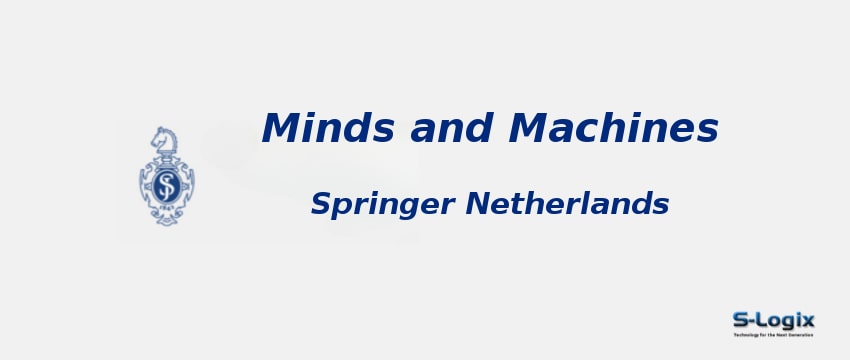Journal Home: Journal Homepage
Editor-in-Chief: Mariarosaria Taddeo
Print ISSN: 0924-6495
Electronic ISSN: 1572-8641
Abstracting and Indexing: Science Citation Index Expanded, Scopus.
Imapct Factor 2024: 3.4
Subject Area and Category: Computer Sciences,Philology
Publication Frequency: Quarterly
H Index: 56
Q1: Artificial Intelligence
Q2:
Q3:
Q4:
Cite Score: 7.8
SNIP: 2.504
Journal Rank(SJR): 1.339
Latest Articles: Latest Articles in Minds and Machines
Guidelines for Authors: Minds and Machines Author Guidelines
Paper Submissions: Paper Submissions in Minds and Machines
Publisher: Springer
Country: Netherlands
